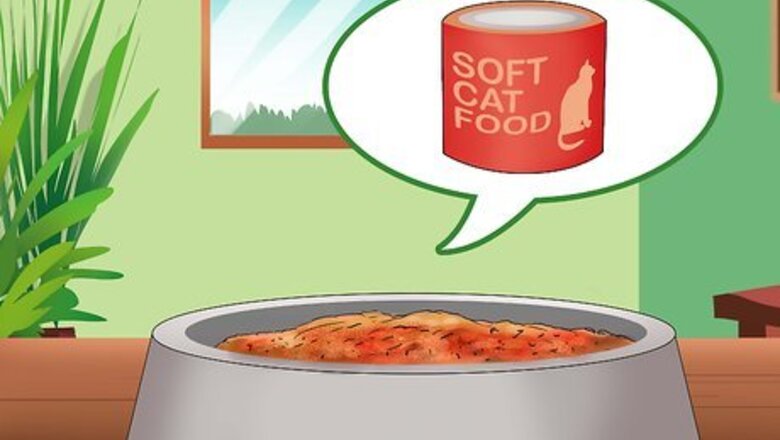
views
Feeding Your Cat a Quality Diet
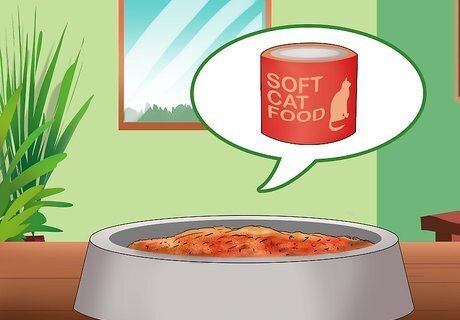
Opt for wet food. Wet food tends to have more water than dry food. Proper hydration can help a cat fight off kidney disease. It's best to go for wet food as your cat's main source of nutrients over dry food. As wet food can be a little pricier than dry food, you can always feed your cat a combination of wet and dry food. This can help prevent kidney disease while also saving you money.
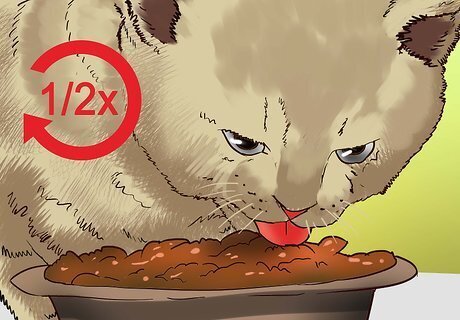
Feed your cat twice a day. Cats in general do better with regular feeding times over free feeding. Most cats benefit from two meals a day. You can split the food into two daily meals, one in the morning and one at dinner time.
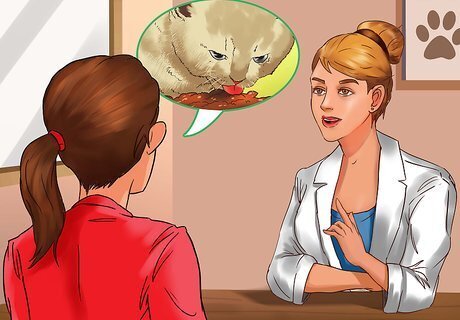
Talk to your vet about portion sizes. Recommended portion sizes on your cat food's label are often inaccurate. The right portion size depends on your cat's current weight, health, and activity level. Every cat has different needs when it comes to nutrition. As obesity can increase the risk of kidney disease, it's best to talk over portion size with your vet to see how much you should feed your cat to keep it at a healthy weight. In general, indoor cats need less food than outdoor cats, as they get less exercise. Indoor cats may need significantly less food than the recommended portion sizes for commercial cat foods.
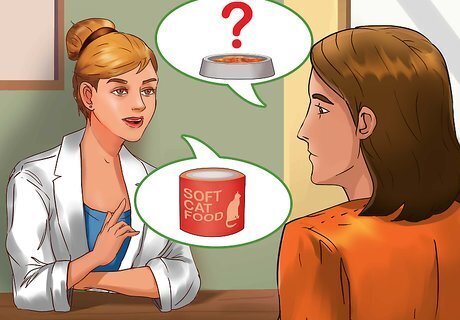
Go for vet recommended cat foods. The best cat foods are highly recommended by vets. Ask your own vet for recommendations or do an internet search on the cat foods most often recommended by vets. Don't rely solely on a cat food's label, as many brands advertise themselves as "veterinary recommended" deceitfully. If your cat has an increased risk of kidney disease, or is already in the early stages, get a specific cat food recommendation from your vet. Special blends may be recommended to treat or prevent early kidney disease. In some cases, your vet may give you a prescription for a modified diet. This diet may be low in protein, phosphorus and sodium and high in water-soluble vitamins, fiber, and antioxidants.
Minimizing Risk Factors
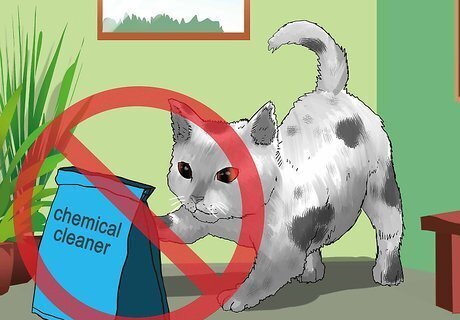
Keep your cat away from common poisons. Household poisons can cause fast acting kidney failure in cats. Keep toxic cleaners, plants, and medications out of your cat's reach. Products containing ethylene glycol, such as antifreeze, should be kept away from cats. For extra safety, opt for antifreeze and similar products made with the less toxic propylene glycol. Keep all medications out of reach and never administer human medication to a cat. Lilies are toxic to cats, so do not keep lilies in your home.
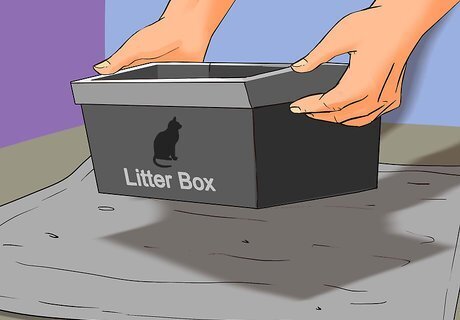
Provide easy access to a clean litter box. The kidneys need to flush out waste regularly, so make sure your cat has a litter box it can easily reach. Keep a litter box in an area of your home that's accessible to your cat. You should also clean the litter box every day, as cats are more likely to use a clean litter box. Make sure the litter box's walls or sides are not too high. Elderly cats especially may have trouble climbing into litter boxes with taller sides.
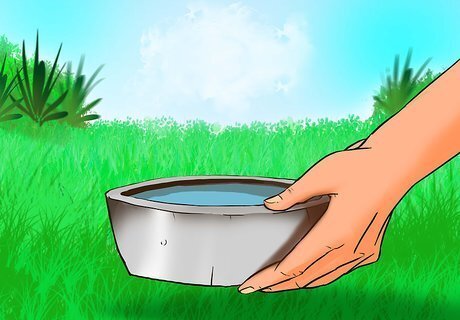
Keep water out at all times. Proper hydration is excellent for your cat's kidney. Have a water bowl out at all times where your cat can easily reach it. Give your cat a fresh bowl every day. Refill the water bowl each time it's empty or if the water gets dirty. A fountain water dispenser can provide clean, flowing water to your cat, encouraging it to drink more. These are available at pet stores and online.
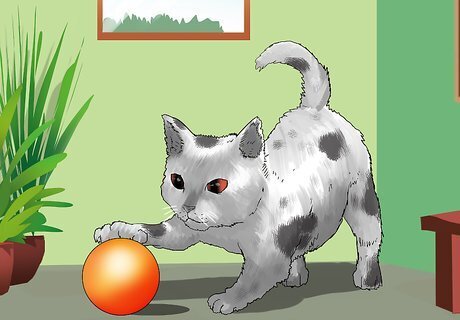
Make sure your cat gets plenty of exercise. Provide a variety of toys for your cat so it gets adequate exercise. This can help prevent obesity, which can lead to kidney disease in cats. Schedule about 20 to 30 minutes a night to play with your cat to keep it healthy. Cats love toys that can be dragged or thrown, like plush mice on the end of strings or small balls. You can throw or drag these toys for your cats to encourage movement. Keep interactive toys on hand so your cat will play when you're not around. Things like puzzle toys, where your cat has to dismantle a puzzle to get a treat inside, are great to keep your cat active while you're out of the house.
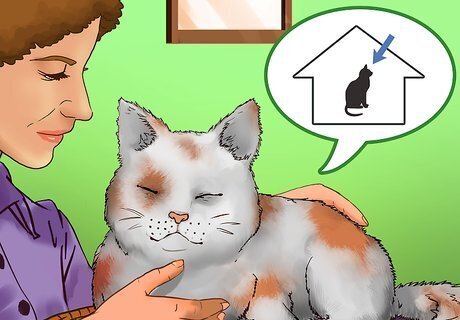
Keep your cat indoors. If your cat goes outdoors, you cannot control its exposure to toxic substances. Outdoor cats are at an increased risk of ingesting various poisons that could cause kidney disease. Strive to keep your cat indoors for its health and well being.
Catching Kidney Disease Early
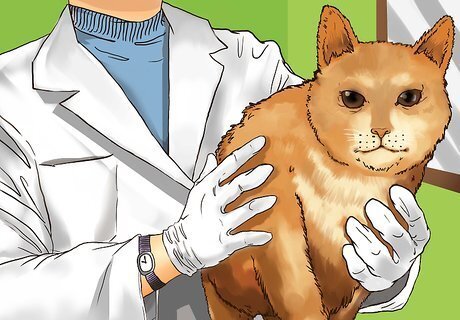
Take your cat to the vet for regular checkups. The earlier you catch kidney disease, the better. Take your cat to the vet twice a year for a basic checkup. Senior cats, who are at an increased risk of kidney disease, may benefit from regular blood work to monitor kidney functioning. Make note of any changes in your cat's behavior, such as fatigue or a lack of appetite, at its annual appointment. The more your vet knows, the better equipped they'll be to watch out for potential problems.
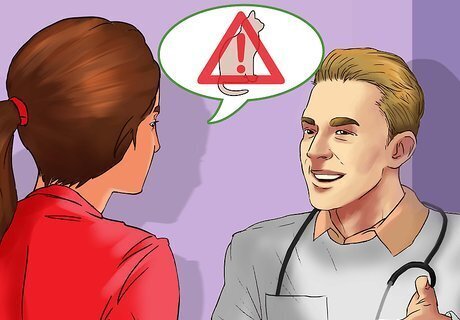
Ask if your cat has an increased risk. Certain breeds are at an increased risk of kidney disease and may require extra medical care and a special diet. Abyssinians and Persians, for example, have a genetic predisposition to kidney disease. If your cat is an increased risk, your vet may want to do test more often and may recommended stricter guidelines for diet and exercise.
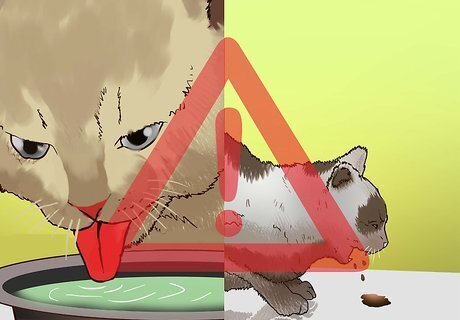
Watch for signs of the disease. As cats age, they are at an increased risk for a number of health concerns including kidney disease. The sooner you catch the disease and start treatment, the better. The following can be warning signs of kidney disease: Increased water intake. More frequent urination. Vomiting. Bad breath.
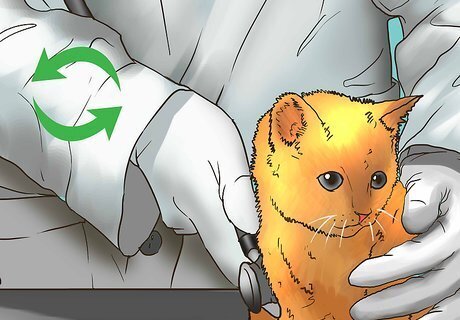
Work out a care plan with your vet. Kidney disease is treatable and many cats live for years after diagnosis. Treatments may include dietary changes or medications and vary widely depending on the stage of the disease. Talk to your vet carefully about a care plan for your cat and follow their advice closely to ensure your cat lives a healthy life despite kidney disease.

















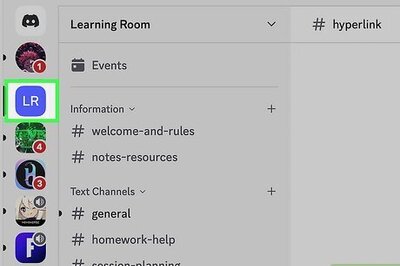

Comments
0 comment